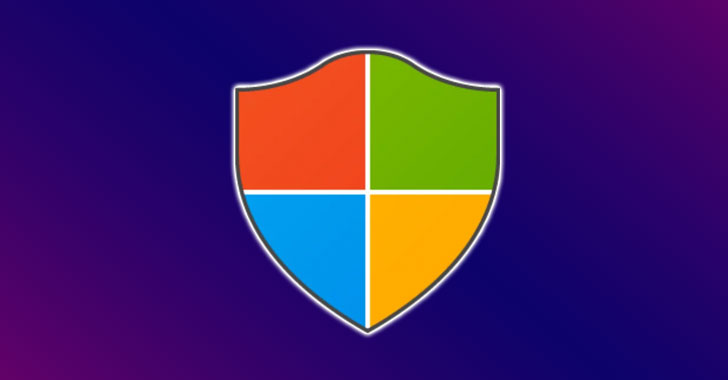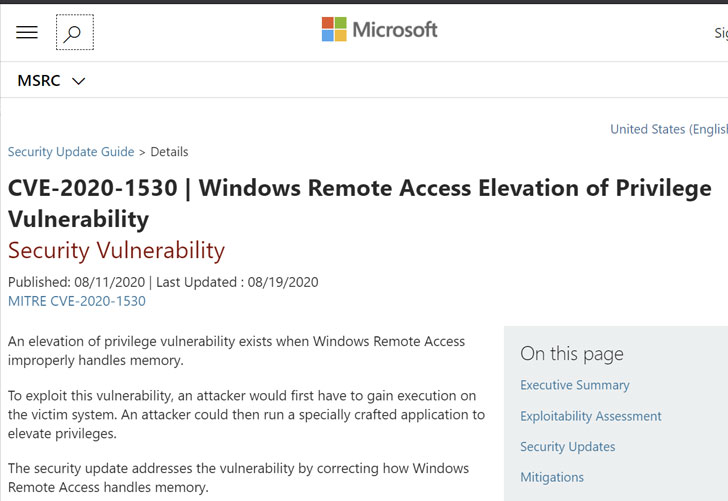for Windows 8.1, Windows RT 8.1, and Windows Server 2012 R2 systems
to patch two new recently disclosed security vulnerabilities.
Tracked as CVE-2020-1530[1]
and CVE-2020-1537[2], both flaws reside in
the Remote Access Service (RAS) in a way it manages memory and file
operations and could let remote attackers gain elevated privileges
after successful exploitation.
In brief, the Remote Access Service functionality of the Windows
operating system allows remote clients to connect to the server and
access internal resources from anywhere via the Internet.
A patch for both vulnerabilities was first released on August 11
with the batch of August Patch Tuesday updates, but it was for
Windows 10, Windows 7, and Windows Server 2008, 2012, 2016, 2019,
and Windows Server versions 1903, 1909, and 2004 systems.
that Windows 8.1 and Windows Server 2012 R2 systems are vulnerable
to both privilege escalation vulnerabilities and released
out-of-band patches.
is highly recommended for Windows users and sysadmins to install
newly available security patches as soon as possible to protect
their servers against potential widespread attacks.
Affected users running Windows 8.1, Windows RT 8.1, or Windows
Server 2012 R2 can also download and install the standalone
packages (KB4578013[4]) from the Microsoft
Update Catalogue website.
Besides these two flaws, the recent Patch Tuesday updates
notably addressed a total of 120 newly discovered software
vulnerabilities, 17 of which have been rated critical, and 2 of
them are being exploited in the wild.
Interestingly, as mentioned in our earlier
report[5], if left unpatched, your
Windows computer could be hacked even if you:
- Play a video file,
- Listen to audio,
- Browser a website,
- Edit an HTML page,
- Read a PDF,
- Receive an email message,
- and many other innocent looking activities.
References
- ^
CVE-2020-1530
(portal.msrc.microsoft.com) - ^
CVE-2020-1537
(portal.msrc.microsoft.com) - ^
announced
(support.microsoft.com) - ^
KB4578013
(www.catalog.update.microsoft.com) - ^
earlier report
(thehackernews.com)
Read more http://feedproxy.google.com/~r/TheHackersNews/~3/Zze4Ghu0jXs/windows-update-download.html

